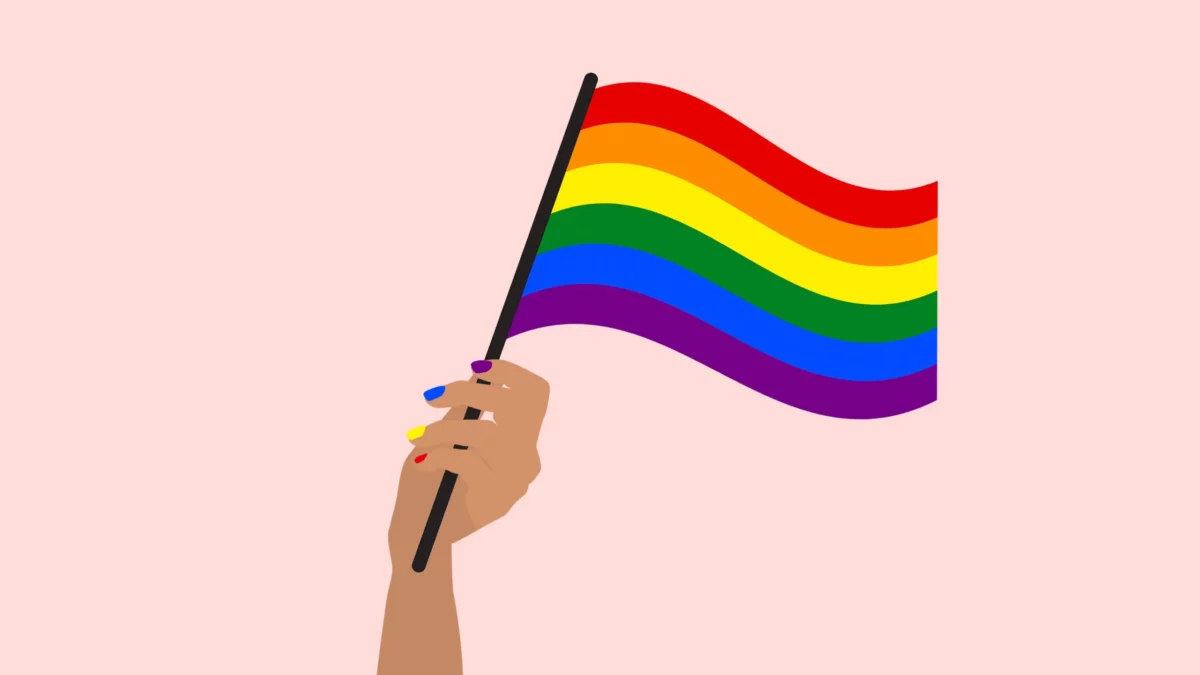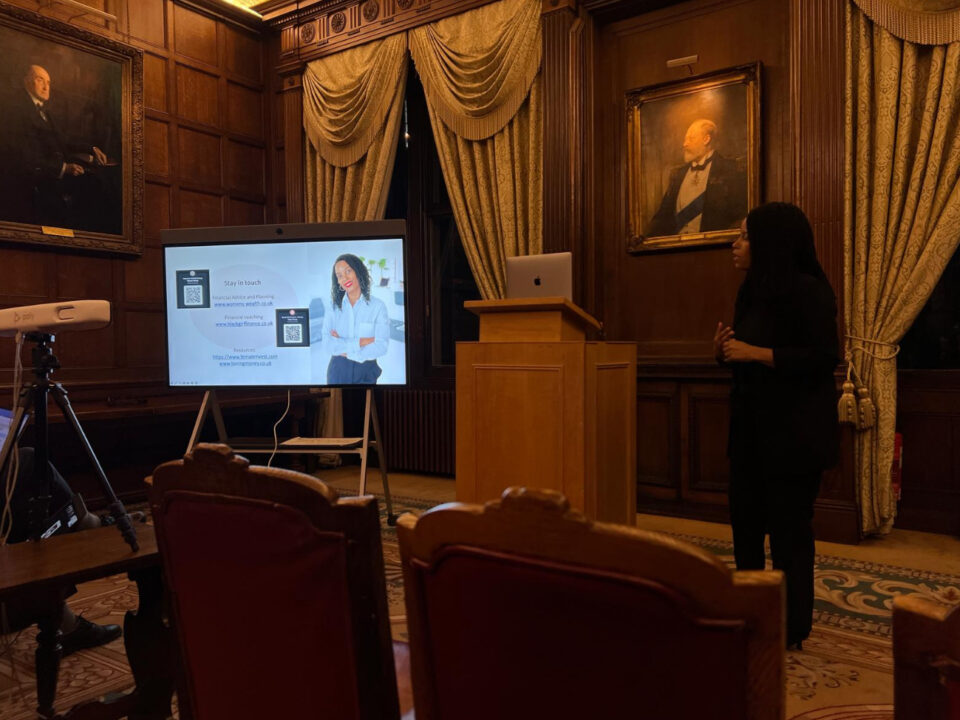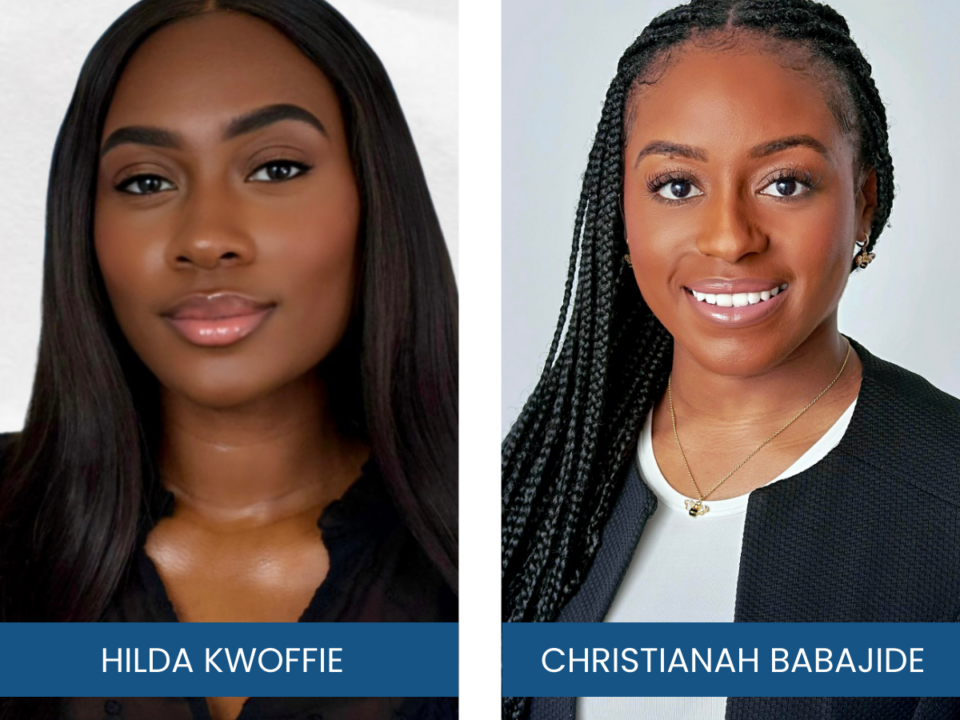
Tech Highlights From Around the Globe – Focusing on Semiconductors and AI
December 5, 2023
Smith and another (appellants) v Royal Bank of Scotland Plc (respondents) [2023] UKSC 34
December 8, 2023Article by Christianah Babajide
“Representation is vital otherwise the butterfly surrounded by a group of moths unable to see itself will keep trying to become the moth.” — Rupi Kaur
Pride Month is an annual celebration for the LGBTQ+ community that takes place globally every June. It commemorates the 1969 Stonewall Riots in New York City, which marked a turning point in the LGBTQ+ rights movement.
Today, Pride Month is a time for queer people and allies to celebrate diverse sexual identities, and advocate for equal rights. So, what can the legal profession do to celebrate Pride Month this year? And what does it mean to truly practice allyship?
Celebrating Pride in Law — Not Just a Month
In 2018, Legal Cheek reported that 16 U.K. City law firms made it onto their 2018 LGBTQ+ rankings, with 11 of those firms rising to the top. Over the years, the legal profession has continued to dominate the LGBTQ+ Top Global Employers list compiled by the equality charity Stonewall.
Last year, the U.K. Law Society joined the U.K. Bar Council and U.K. Chartered Institute of Legal Executives to attend the Pride March for the first time in three years. The event marked 50 years since the first Pride March took place in the U.K.
Law firms and barristers’ chambers should be mindful of the visuals on their website, start using gender-neutral language, and provide options beyond male and female on their job applications. For example, there should be the option to use the gender-neutral title Mx for people who do not identify with traditional titles. One barrister made headlines in 2021 for becoming the first barrister in the U.K. to publicly come out as nonbinary and to use Mx as their honorific title.
There is also an innovative tool called a gender decoder that businesses can use to remove gendered language from text, specifically for job adverts. By using the decoder, graduate recruitment and human resources departments could identify and address any potential bias in their language to publish more inclusive job descriptions and website copies.
People usually get a strong feeling about whether a workplace will be inclusive to the LGBTQ+ community by the type of language that is used. Law firms and chambers should avoid using othering language. For example, when asking a colleague about their family life, avoid using terms “husband” or “wife,” and instead ask: “Do you have a partner?” By using inclusive language, we are communicating that we respect and value the individual as part of the team, which has a knock-on effect on staff morale.
Other ways the legal profession can be more supportive of the LGBTQ+ community include:
- Having inclusive facilities such as gender-neutral toilets;
- Allowing employees to express their preferred pronouns on email signatures and
website profiles; - Hosting events such as lunch and learn sessions on LGBTQ+ allyship;
- Implementing mandatory firm-wide training on LGBTQ+ anti-discrimination issues; and
- Creating inclusive policies within their organisations relating to parental leave, pension and adoption.
What Is Allyship?
is the practice of supporting other people who are part of a group that is treated badly or unfairly, although you are not yourself a member of this group. It involves recognising one’s own privilege and using that privilege to mold a just society.
This can include speaking out against direct and subtle discrimination, using inclusive language, while encouraging others to do the same and educating oneself on the issues faced by marginalised communities. It could also include enrolling on a “Rainbow Awareness Training” course, which is suitable for anyone wanting to become a better ally and improve their understanding of rainbow communities.
A true ally is intentional with their actions and is eager to help LGBTQ+ people thrive. That being said, effective allyship requires more than just good intentions. It also involves taking positive actions to support and advocate for others, where they might not feel strong enough to do so themselves, and being willing to listen and learn from members of the LGBTQ+ community who have much to teach us. By practicing allyship, individuals can promote the rights and well-being of everyone, regardless of their background or identity.
Access To Justice
LGBTQ+ people often face discrimination and bias in various aspects of their lives, including employment, housing and health care. A recent BBC News article revealed that outright and indirect discrimination affects LGBTQ+ workers and is even driving them out of their jobs.
Forty percent of LGBTQ+ workers also reported experiencing workplace conflict, which is 11% higher than heterosexual, cisgender workers in the U.K., according to a 2021 study. Those numbers were even higher for transgender employees at 18%. What is even more worrying about the study is that many of the reported conflicts were never fully resolved.
Queer people are also disproportionately affected by poverty and homelessness, which can make it difficult to access legal services. Research from Stonewall revealed that almost 20% of LGBTQ+ people, and 25% of trans people, have experienced homelessness at some point in their lives.
By providing pro bono legal services to LGBTQ+ clients, lawyers can help to ensure that all members of the LGBTQ+ community have access to justice, regardless of their finances. In 2022, Legal Cheek reported that two law firms partnered with the LGBTQI charity GiveOut to launch a new LGBTQI Legal Aid Fund.
The partnership was an opportunity for lawyers to set a good example by promoting diversity, equity and inclusion by ensuring LGBTQ+ clients receive fair treatment and access to justice.
Building Trust
As legal professionals, it is our duty to ensure that all members of society are treated equally under the law. As allies, lawyers can help to promote equality and combat discrimination.
Feeling confident that legal representation will support and accept LGBTQ+ identities and issues may be a major roadblock for LGBTQ+ individuals seeking access to legal aid. By being an ally to the LGBTQ+ community, legal professionals can help to build trust by creating a more inclusive environment.
Being an ally to the LGBTQ+ community is important for building trust, setting a positive example and improving representation in the legal profession.
Self-Education Goes a Long Way
There are several ways that lawyers and legal organisations can ensure they are practicing allyship toward the LGBTQ+ community, including educating themselves, their colleagues and the public.
Lawyers should make an effort to educate themselves on the issues and legal challenges faced by the LGBTQ+ community, including discrimination and healthcare disparities and seek out opportunities to learn from LGBTQ+ colleagues and advocates.
Self-education is a key component to being a good ally because it is tightly connected to lawyers’ understanding of the unique legal needs and rights of their clients. Ultimately, awareness of such issues helps to improve access to justice for the LGBTQ+ community.
Law firms and chambers can use their powerful platforms to amplify the voices of LGBTQ+ individuals and organisation’s by hosting panel discussions and workshops to educate attendees. They could also share stories, and write articles and op-eds on LGBTQ+ issues.
Pro bono work, making donations or attending events that promote LGBTQ+ rights and inclusion are other ways that lawyers can be good allies. By taking these steps and promoting the rights of all individuals, regardless of their sexual orientation or gender identity, lawyers are contributing toward a diverse profession.
Looking Forward
The legal profession has played a significant role in advancing LGBTQ+ rights over the years, from the decriminalisation of homosexuality to the legalisation of same-sex marriage. Although we have come a long way, we must not rest on our laurels. It is nothing to be proud of that we have only one publicly nonbinary barrister in the U.K, when the reality is that we could have many more gender diverse individuals in these positions.
To ensure there is sufficient support, guidance or a network for barristers and solicitors in both professions, lawyers must continue to work together with organisations including the Bar Council, the Bar Standards Board, Solicitors Regulation Authority and the Law Society. Nobody should fear that being their true selves might have repercussions on their careers or how they are treated.
This article was originally published on Law360 in May 2023.





